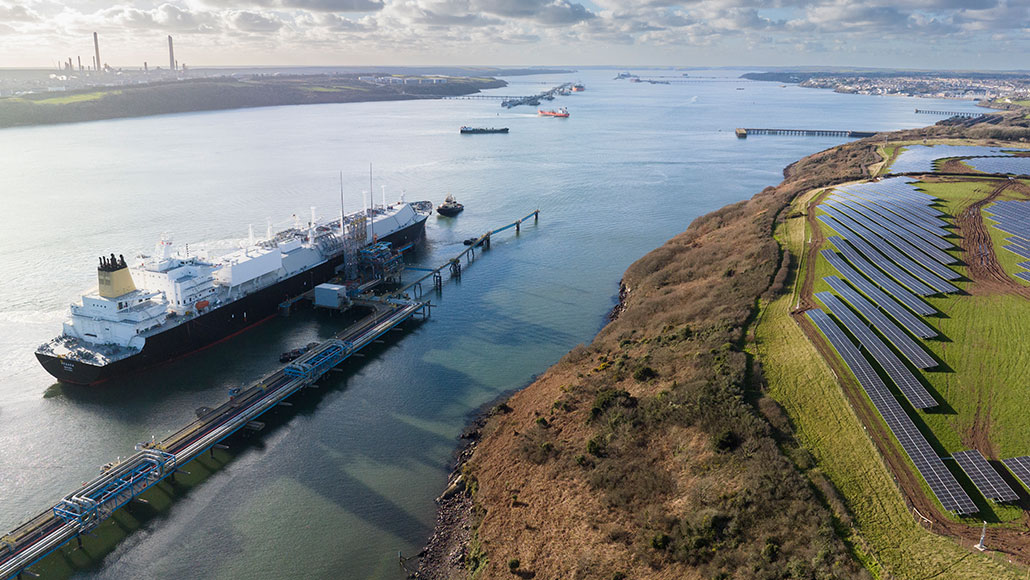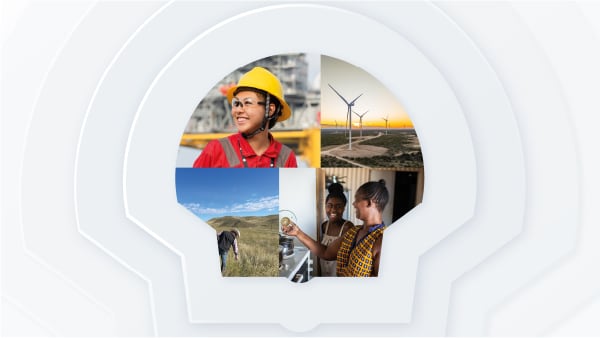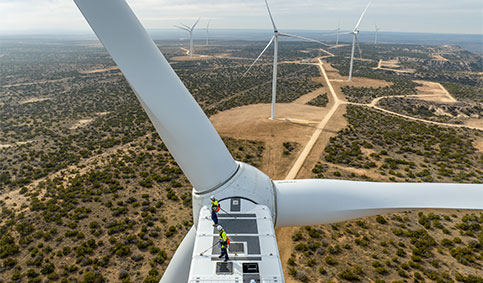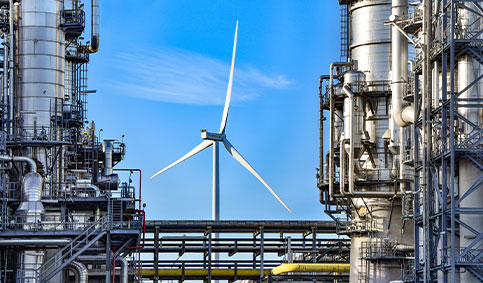Natural gas and liquefied natural gas (LNG)
Our recently updated global policy positions call for governments and the finance community to recognise the role of gas in the energy transition and in securing stable energy supplies. We believe clarity on the role of gas and lower-carbon gases in multiple sectors,[1] and supportive policies on planning, permitting and gas infrastructure, are vital to enable the investments needed to support energy security and decarbonisation.
In Brazil, Shell and other industry partners took part in the “gas for jobs” initiative launched by the National Council for Energy Policy (CNPE) in 2023. The initiative aims to promote the best use of natural gas produced in Brazil including its use for the country’s socio-economic development and the energy transition.[2] We contributed to several working groups, including those on gas supply, the gas market and the role of gas in the energy transition.
We expect LNG will play a critical role in the transition. It continues to provide a secure supply of energy in many European countries. It also offers flexibility to electricity grids as wind and solar power grow, and opportunities to lower carbon emissions from industries such as cement and steel by replacing coal.
Each year we publish our annual LNG Outlook, which explores LNG supply and demand, and emerging future trends.[3] In 2023, we engaged with policymakers in various regions, including Asia, the EU and the Middle East. We advocated the benefits of natural gas and LNG in delivering a flexible and reliable supply of energy, which can help reduce the dependence on more carbon-intensive fuel sources.
In 2023, we continued to engage with European governments and the European Commission on the role of LNG in supporting energy security. We highlighted the need for clarity about the role of gas in the medium term. We also shared our views and experiences of the EU gas market in the EU Energy Platform Industry Advisory Group.[4] The Commission set this up in 2022 to coordinate EU action in global gas markets.[5]

[1] Lower-carbon gases refers to biogas and biomethane/renewable natural gas. These also include hydrogen and hydrogen derivatives (e.g. synthetic methane and ammonia) made from renewable sources, decarbonised fossil fuels or electricity.
[2] www.gov.br/mme/pt-br/assuntos/secretarias/petroleo-gas-natural-e-biocombustiveis/gas-para-empregar
[3] www.shell.com/what-we-do/oil-and-natural-gas/liquefied-natural-gas-lng/lng-outlook-2024
[4] ec.europa.eu/transparency/expert-groups-register/screen/expert-groups/consult?lang=en&groupID=3865
[5] energy.ec.europa.eu/topics/energy-security/eu-energy-platform_en









